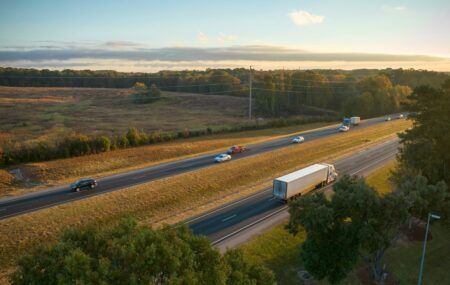After months of careful consideration and development, one of the UK’s leading motor insurance companies is taking a pioneering step with the launch of the country’s very first personal driverless car insurance policy.
The launch is a bid by the Adrian Flux company to support the UK in being at the forefront of self-driving technology. The company hopes that the new policy will encourage debate and discussion around the issue of liability and autonomous technology, as well as provide another step forward as the UK prepares for the driverless revolution. The policy is designed for consumers who may already have driverless features in their existing cars, such as self-parking, or who may be thinking of buying a new car with driverless or autopilot features. The Modern Transport Bill announced by the government last month will extend compulsory cover to accidents where the car itself, rather than the driver, is at fault; something the insurance industry welcomed. A week later, the UK Road Minister, Andrew Jones, said, “In the event of a serious collision in driverless mode, it would be the vehicle at fault, instead of the human driver.”
The new driverless policy has additional features over a standard car insurance policy. Customers will be covered for loss or damage in the following scenarios:
If updates or security patches for things like firewalls, operating systems, electronic mapping and journey planning systems have not been successfully installed in the vehicle within 24 hours of the owner being notified by the manufacturer or software provider; If there are satellite failure/outages that affect the navigation systems, or if the manufacturer’s operating system or authorized software fails; Where there is loss or damage caused by failing, when able, to use manual override to avoid a collision or accident in the event of operating system, navigation system or mechanical failure; For loss or damage if the car gets hacked or an attempted hack results in loss or damage.
Gerry Bucke, general manager for Adrian Flux, said, “As the UK continues to invest in driverless research in preparation for the growing market for autonomous vehicles, we wanted to help provide confidence and clarity around the ongoing debate of ‘who is liable?’ We understand this driverless policy to be the first of its kind in the UK; and possibly the world. It’s a fantastic starting point for the insurance industry, and the policy, like any other, will be updated as both the liability debate and driverless technology evolve. More than half of new cars sold last year featured autonomous safety technology, such as self-parking or ABS, which effectively either take control, or take decisions on behalf of the driver. Driverless technology will become increasingly common over the next few years. We want this policy to reflect this transition and evolution. We already provide discounts for cars fitted with assistive technology, such as autonomous braking, as it has been proved to reduce accidents and therefore claims. This is a natural continuation of the work that’s already gone into this area.”




